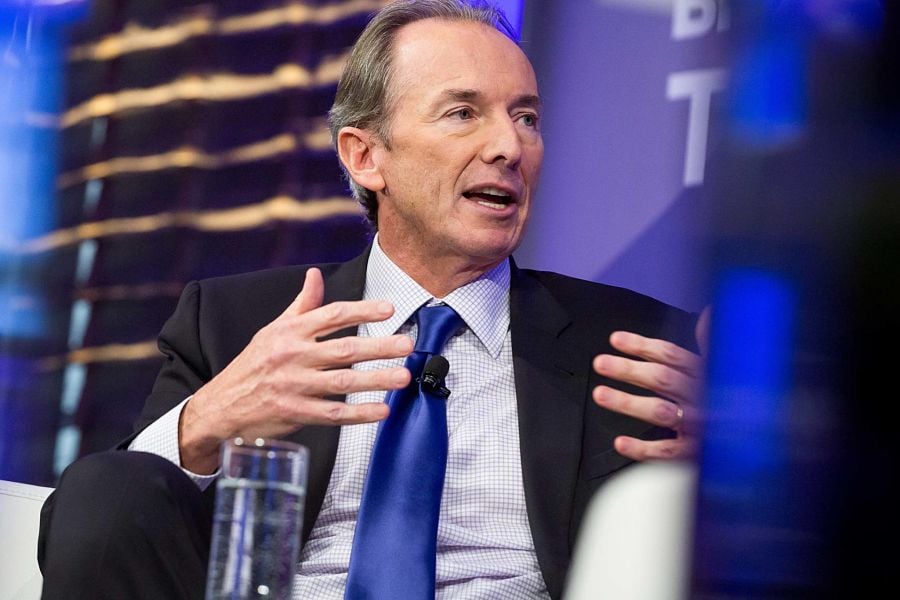

James Gorman, CEO of wealth management and investment banking giant Morgan Stanley, believes that office life has shifted as Wall Street and the country deal with the continued impact of the COVID-19 pandemic.
Ninety percent of Morgan Stanley’s 80,000 employees are now working from home. While Gorman is a big believer in office culture and how it helps build teams and creativity, it is likely that Morgan Stanley's 15,000 financial advisers and support staff will spend more time working remotely from their offices and living rooms at home.
Real estate is one of the biggest costs for banks and wirehouses like Morgan Stanley. And big firms like Morgan Stanley have been shaving costs for years. For example, some have pulled back from competitive recruiting of financial advisers, which is extremely expensive.
"Clearly, we’ve figured out how to operate with much less real estate," Gorman said in an interview last week with Bloomberg Television. "That’s No. 1, right off the bat."
"Now, do I think that everybody’s going to be working from home? No," said Gorman, who had the coronavirus but has since recovered. "I think the mentoring, the connection, the team bonding, the brainstorming and creativity that comes from being in groups of individuals of the like-minded and the non-like-minded — that’s how great organizations thrive."
"But could I see a future where, part of every week, certainly part of every month for a lot of our employees to be at home?" he asked. "Absolutely."
Morgan Stanley will potentially have less of a real estate "footprint" in urban money centers like New York and Hong Kong in the future, Gorman added. "I think that’s highly likely. On the other hand, as I’ve said, I want most people in the office most of the time."
One recruiter agreed with Gorman that working from home will become more common while noting the attractions of being in the office. "If you like the wirehouse model, there’s something about liking the big office, the camaraderie, the energy you get from walking around the halls, the fun from the softball team," said Danny Sarch. "That appeals to people."
But the temptation for big firms to reduce costs through cuts and limits on real estate and office may prove too great, noted Shirl Penney, CEO of Dynasty Financial Partners, which helps advisers at large firms like Morgan Stanley leave and set up their own RIAs.
"To help protect earnings at some point, the home office will have to cut costs, which often means people who are resources to support the advisers and their clients, and real estate," said Penney, a former senior wealth management executive at Smith Barney, which was acquired by Morgan Stanley during the last financial crisis.
"But those are two of the bigger items wirehouse advisers typically say they get leverage from ... real estate and support staff," he said. "Cuts to those items further frustrates advisers."
Wealth management at Morgan Stanley is a significant business. The company reported that wealth management posted $4 billion of net revenue in the first quarter. That’s 42% of the total $9.5 billion in revenue the firm reported over the first three months of the year.

MyVest and Vestmark have also unveiled strategic partnerships aimed at helping advisors and RIAs bring personalization to more clients.

Wealth management unit sees inflows of $23 billion.

Deal will give US investment bank a foothold in lucrative European market.

New report examines the impact that the initiative has had on philanthropy.

Few feel confident that they will meet their retirement goals.
Orion's Tom Wilson on delivering coordinated, high-touch service in a world where returns alone no longer set you apart.
Barely a decade old, registered index-linked annuities have quickly surged in popularity, thanks to their unique blend of protection and growth potential—an appealing option for investors looking to chart a steadier course through today's choppy market waters, says Myles Lambert, Brighthouse Financial.
